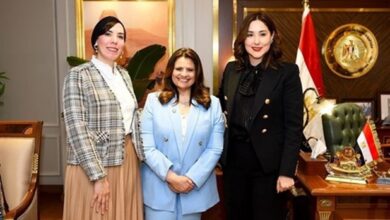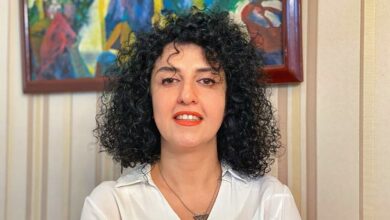The tumultuous constitution-writing process was dealt another blow this week when secular powers withdrew from the assembly tasked with drafting the new constitution.
Their walkout, preceded by the withdrawal of Coptic Church representatives, is unlikely to halt the work of the Constituent Assembly. Instead, they are set to begin drafting an “alternative constitution” that they say will guarantee social justice and enshrine the objectives of the 25 January revolution.
They will also work to mobilize public support against the official draft being finalized by an assembly long criticized for being dominated by Islamists.
However, the prospect of an alternative constitution has no legal backing and may not easily manage to draw broad public support. In this scenario, and as the current Constituent Assembly carries on with its work despite the walkouts, the risk is high of a constitution written mainly by Islamists.
At least 10 secular figures who have the authority to vote on the constitution withdrew from the assembly Sunday. Among them are former Arab League Secretary General Amr Moussa, Constituent Assembly Speaker Wahid Abdel Meguid, constitutional expert Gaber Nassar and Wafd Party Deputy Chairman Fouad Badrawy.
“We reached a dead end,” Abdel Meguid says.
On Tuesday, the Journalists’ Syndicate withdrew its members from the assembly after an emergency meeting, according to state news agency MENA. The syndicate’s Secretary General Gamal Fahmy says this was a response to the “hostility” towards media rights and freedoms in the current draft of the constitution, adding that the syndicate will also announce a general strike.
Moussa says the performance of the assembly has deteriorated and general discussions have dwindled as the Islamic majority took charge of approving controversial articles. “The constitution belongs to all Egyptians … not a specific political party, even if it is the majority,” Moussa said Sunday in a press conference, referring to the Muslim Brotherhood’s political arm, the Freedom and Justice Party, which held a majority in the now-dissolved Parliament.
The wave of withdrawals began Saturday when the Coptic Orthodox, Catholic and Anglican churches pulled out their three representatives, undermining the legitimacy of the assembly, which now has no representatives for a minority that comprises about 10 percent of the population.
Abul Ela Mady, deputy head of the Constituent Assembly, said Monday that Al-Azhar was in talks to convince church representatives to return.
However, church leaders have said the decision is final, and their reasons are not unlike those of secularists who want a civil state, even though their walkout is being depicted as based purely on religious factors.
Eight out of 11 members of the assembly Advisory Committee also withdrew Saturday. Established in September to appease secular powers, its members have no voting rights and its suggestions are solely advisory, says media personality and committee member Hamdy Qandil.
Members say their proposed amendments to 50 articles were ignored.
“The committee has four constitutional law experts, three law experts and representatives of different political movements,” says Qandil.
“We are capable of drafting an alternative constitution for revolutionary Egypt.”
Ahmed Maher, general coordinator of the April 6 Youth Movement, pulled out of the assembly Saturday, followed by colleague Ahmed Ezz, in solidarity with other secularists. Others suspended their membership, including Ghad al-Thawra Party head Ayman Nour and former MP Mohamed al-Sadat. Nour said the party would make a final decision by 24 November on whether to completely withdraw.
Contentious issues
Bishop Morcos of the Shubra Archdiocese tells Egypt Independent that many of the articles in the new constitution would impede the establishment of a civil state, referring specifically to Article 220, which defines the word “principles” in the highly contentious Article 2.
Article 2 states that “principles of Islamic Sharia are the main source of legislation.” Salafi groups have pushed for replacing the word “principles” with “provisions” to allow for a stricter and broader implementation of Islamic rules.
Hardline Islamists seemingly reached a compromise by adding Article 220, which goes on to clarify that Sharia “principles” are to be deduced from Islam’s fundamental rules and its Sunni sources. However, along with church members, secular forces in the assembly slammed the article, saying it changes the true meaning of Sharia.
Meanwhile, on 7 November, the Constituent Assembly annulled Article 68, which stipulates that the state should take all precautions to ensure equality between men and women “without violating the provisions of Islamic Sharia.”
The article is identical to Article 11 in the 1971 Constitution. However, liberals demanded the removal of the sentence referring to Sharia, saying it could restrict women’s freedoms, including their right to travel without a spouse’s consent and their right to equal inheritance.
In turn, Salafis were aggravated. Mady claims it was secularists who requested the annulment of Article 68 as a form of compromise. Nader Bakkar, spokesperson of the Salafi Nour Party and member of the Constituent Assembly, says secular members should discuss these issues within the assembly instead of withdrawing.
Workers’ and farmers’ rights were also seen as lacking in the constitution, and secularists were pushing to include mechanisms for distributing plots of land to poor farmers and prohibiting their eviction except by court order.
Nassar, the constitutional expert, refers to the “broad” powers held by the president in the new constitution as more than those held by former President Hosni Mubarak. The draft constitution gives the president the authority to appoint the prime minister. Nassar argues it should stipulate that the prime minister be chosen from the parliamentary majority.
The president also has the power to appoint the heads of independent monitoring bodies and watchdogs, which secular powers say would obstruct their ability to oversee executive authorities.
Constitutional law expert and assembly member Gamal Gobrael argues that since the Senate would have to approve these appointments, the president’s powers would be restricted.
He adds that the new constitution would strip the president of many authorities, including the appointment of the chief prosecutor, as well as broad legislative powers.
Carrying on
The walkouts and suspensions did little to hinder the work of the Constituent Assembly, which said Monday it would carry on with the process to meet the 12 December deadline.
Leading members of the assembly deny that Islamists are dominating the process, and say secular forces are actively involved in the discussions and drafting of the articles. “This assembly is dominated by no one,” Mady said, hoping that secularists will reconsider their stance.
Moussa, however, has made it clear that the decision is irreversible.
A total of 67 percent of the assembly must vote in favor of an article for it to be approved. If that target is not met, then at least 57 percent of the assembly must approve the article within the following 48 hours.
“The 67 percent of the Constituent Assembly that have to approve articles are all Islamists,” Raafat Fouda, professor of constitutional law at Cairo University, tells Egypt Independent.
Legally, Fouda says, the assembly may continue its work by calling in substitutes who were elected to step in for original members in case of absence for an emergency. Substitutes are allowed to vote and approve articles, and, in this case, may replace the secular figures who withdrew.
The problem now becomes that substitute members are “dominated by the Brotherhood and Salafis, which means the constitution will not represent secular forces … [and] will be flawed,” Fouda says.
The new draft constitution has a strong Islamic influence enforced by a majority of about 70 percent in the assembly. Secular powers are wary that this eliminates any hope for a moderate, secular constitution that represents all Egyptians.
After five months, secular members say discussions have screeched to a halt — not because of the insistence on incorporating Sharia into the constitution, but because its interpretation by hardliners threatens people’s rights and freedoms.
“Islamic Sharia being part of the principles of the constitution is not the issue, but we refuse concepts alien to Sharia and to our society,” Abdel Meguid says, describing those concepts as “Taliban-like.” Moussa agrees, adding that the constitution lacks guarantees for social and women’s rights.
The Constituent Assembly’s haste to finish before 2 December — when the Supreme Constitutional Court will start reviewing a case calling for its dissolution — was another reason behind secular members’ withdrawal.
More than 230 articles are supposed to be approved in mere days, Nassar says, criticizing the hastiness.
“This has never happened in the history of writing constitutions in Egypt or any other country,” he adds.
Constituent Assembly Secretary General and Brotherhood member Amr Darrag vehemently rejects these claims, saying they have been working for five months, or more than 60,000 hours, to draft the constitution on time. “That means we spent around 300 hours on each article,” he says.
Morsy has said he would form another assembly if the current one does not finalize the draft on time — a right granted him by the March 2011 interim constitution. However, Fouda argues it was within Morsy’s right to issue a supplement to the Constitutional Declaration, giving the assembly more time to finish without holding a public referendum.
In the end, Darrag says, the people should study the articles thoroughly because they will have the final say in the constitution.
This piece appears in Egypt Independent's weekly print edition.




